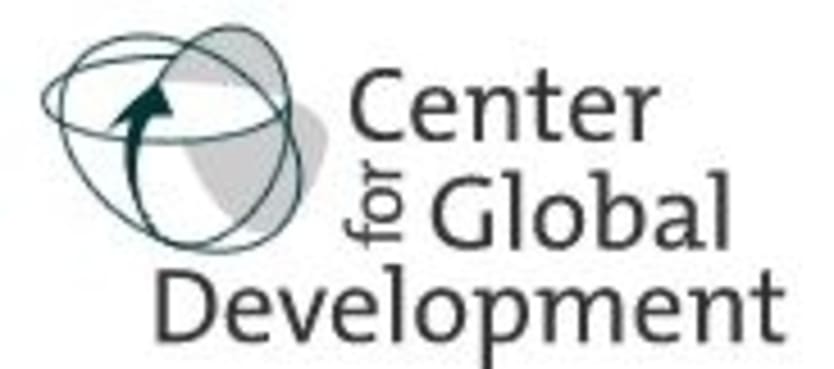
EDITOR’S NOTE: Mobile phones can help improve learning in sub-Saharan Africa, according to Jenny Aker and Kristy Bohling of the Center for Global Development, citing a new CGD study. In Niger, beneficiaries of a mobile literacy program, they add, demonstrated improvements in literacy and numeracy skills.
I recently received a text message from my friend Karim in Niger, asking “Keski ce passe?” (What’s happening?). Those of you who know French might notice his text is an abbreviation of the much longer expression for “Qu’est-ce qui se passe”, which is formal and proper but a bit long when you only have 140 characters. Such abbreviations in French, English and other languages have caused teachers and parents alike to blame texting for corrupting our language and “degrading [the] spelling of [our] youth.” Existing studies in the UK and elsewhere have debunked these claims, and, the National Adult Literacy Database called on people to celebrate International Literacy Day by “reading or writing, tweeting or texting.” In fact, mobile phones and texting might be a new tool in the arsenal against illiteracy: our new research in Niger suggests that mobile phones could promote literacy and numeracy skills in sub-Saharan Africa.
Less than 15 percent of Niger’s adult population are considered to be literate and numerate– meaning they can read, write and conduct simple calculations in any language. For decades, governments and NGOs in sub-Saharan Africa have tried to improve educational outcomes in a variety of ways, from school construction and inputs to school feeding and conditional cash transfers. Adult literacy programs, however, have gotten a particularly bad rap — criticized for low levels of enrolment, poor graduation rates and a rapid loss of skills. These factors are often cited as the reason for the marked reduction in the World Bank’s financial support of adult literacy programs since 1990.
Are adult literacy programs really so bad? Or have we been expecting too much from too little? Literacy programs in developing countries are often short and intense, trying to cram several years of education into a short time period (usually 8-10 months’ of instruction over two years). This can result in short-term learning, but can fall flat if students are unable to practice their literacy skills after the course ends. This isn’t surprising – think about how good your Spanish was high school versus how much you remember now (especially if you haven’t used Spanish recently). If you don’t use it, you lose it. This is similar in West and Central Africa, where non-governmental organizations might offer literacy classes in local languages, but where there are few, if any, local language newspapers to practice the skills. And even if such newspapers exist, getting them to rural areas is a problem.
The idea for Project Alphabetisation de Base par Cellulaire (ABC) was precisely to overcome this constraint. Mobile phone coverage and usage has grown dramatically in Africa over the past decade, and certainly in Niger. Combined with adult literacy and numeracy classes, Project ABC teaches students how to use simple mobile phones – finding the numbers on the keypad, making and receiving calls and writing and reading SMS. Implemented by Catholic Relief Services/Niger, and in collaboration with Tufts and Oxford Universities, the project started in 59 villages in February 2009, reaching over 2,950 literacy participants in the Dosso and Zinder regions of Niger. In an effort to disentangle the effects of using mobile phones from the literacy curriculum, the program implemented Project ABC in only half of the villages, which were randomly chosen.
The below figure summarizes the main results of the program, which shows students’ test scores before, immediately after and eight months after the first year of the program. First, all students (ABC and non-ABC) improved considerably as a result of the literacy program: going from “beginner” (someone unable to recognize letters or numbers to level 2 (someone able to read and write simple words and do simple calculations). Second, students in the ABC (mobile phone) villages had higher test scores than their non-ABC counterparts – in the case of math, about ½ point higher. And third, while both groups lost some of their skills between the first and second year of classes, the rate of skills loss was less in the ABC villages, especially for math.

While the figure provides some intuition for the impacts of the ABC program, statistically speaking, we find that the effects are mainly for math (rather than writing), and are stronger for one region and for younger populations. But considering that adults only had 6 weeks of the mobile phone module in 2009, the impacts suggest real learning.
Will mobile phones boost education outcomes in developing countries? We don’t know yet – but the results are promising. We will be looking into additional impacts now that the second year of the program has finished. Plus, the results of other mobile phone literacy programs in Senegal (The Jokko Initiative), Pakistan and South Africa will provide additional evidence in other contexts. But if mobile phones provide a bigger bang for our literacy buck, then governments and donors might need to rethink their investments in literacy programs.
Re-published with permission by the Center for Global Development. Visit the original article.








